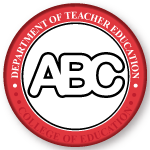Author ORCID Identifier
Rende - https://orcid.org/0000-0002-7079-477X
Jones - http://orcid.org/0000-0002-3815-510X
Nieuwsma - http://orcid.org/0000-0002-4150-5916
Carrier-http://orcid.org/0000-0002-6902-812X
Refvem - http://orcid.org/0000-0003-1958-5849
Delgado - http://orcid.org/0000-0002-8873-9920
Grifenhagen -http://orcid.org/0000-0001-7652-5813
Document Type
Article
Publication Date
10-24-2022
Journal Title
International Journal of Science Education
Volume
44
Issue
16
First Page
2485
Last Page
2504
Abstract
Awe is a complex emotion theorised to impact science learning and practice. In science education, awe has the potential to motivate explanation-seeking, promote conceptual change, and instill feelings of connectedness to the natural world. This exploratory study examined teachers’ experiences with awe as well as their uses of awe in their science instruction. Thirty-four elementary (grades 4-5; n =14) and middle school (grades 6-7; n = 20) teachers completed a survey of awe perceptions and experiences and participated in a semi-structured interview. Results showed that science teachers report using awe-invoking classroom experiences in a variety of science disciplines with the intention of leveraging the emotional response in ways that facilitate learning outcomes and inspire long-term science interest. Teachers also reported numerous dispositional factors they perceived as being influential in governing awe experiences in science instruction including age, prior experiences, interest, curiosity, and the presence of co-occurring emotions. This study adds to the developing body of work around awe and science instruction, supports the findings from other fields related to the epistemic and self-transcendent nature of awe, and suggests that awe can be used to enhance science teaching and learning.
Recommended Citation
M. Gail Jones, Julianna Nieuwsma, K. Rende, Sarah Carrier, Emma Refvem, Cesar Delgado, Jill Grifenhagen & Pamela Huff (2022) Leveraging the epistemic emotion of awe as a pedagogical tool to teach science, International Journal of Science Education, 44:16, 2485-2504, DOI: 10.1080/09500693.2022.2133557


Comments
This is an Accepted Manuscript of an article published by Taylor & Francis in International Journal of Science Education on October 24, 2022, available online: https://doi.org/10.1080/09500693.2022.2133557